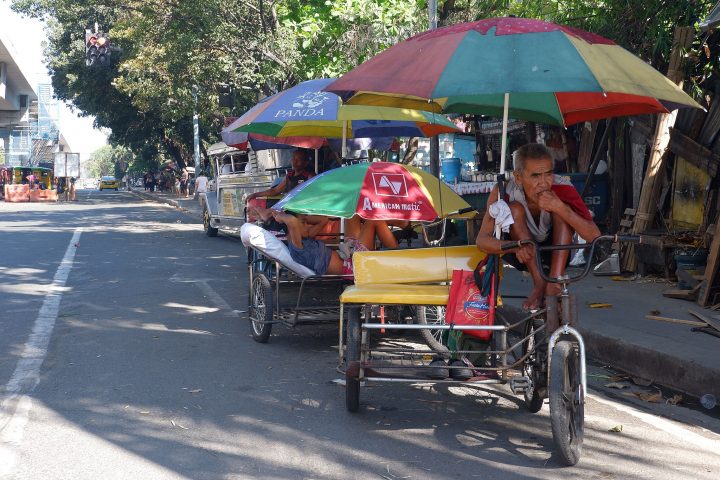PMPI Press Release
Rather than be enlightened and feel safe, people have become more frustrated and confused, following President Rodrigo Duterte’s press conference last 12 March 2020 as indicated in many social media postings. The press conference was most awaited given the prior announcement by the World Health Organization that the spread is now pandemic and the continuing increase of monitored numbers in the country. People expected to hear the government’s plans to manage the spread of the coronavirus disease 2019 (COVID-19).
The President declared a one-month community quarantine starting March 15 until April 12. However, he just read through the resolution proposed by the inter-agency task force on COVID-19 and promised that an executive order with more details will be released soon and giving to different government agencies the task of detailing measures of stopping the spread of the deadly virus.
“This is unacceptable. What we want to hear from a President is a decisive and concrete plan of action to stop contagion especially detailing measures for the most vulnerable constituents of his country. Giving a lead time to implement the lockdown is opening-up a wider window to spreading the virus all over the country and not containing it,” Yolanda Esguerra, PMPI National Coordinator said.
In the midst of the continuous and fast increase of the number of confirmed COVID-19 cases and deaths, it seems the Department of Health (DOH) grapples at monitoring, tracing, reporting of cases.
“The Filipinos need truthful and fast reporting of cases. We understand the principle of confidentiality of those infected. But in the minimum, we expect full disclosure of the location of these cases to make communities aware and take extra care in their social engagements,” Cecil de Joya of Medical Action Group said.
Citing positively the quick responses of schools and some local governments concerned, the group reiterated that children, senior citizens, persons with health challenges should be identified and taken-cared of in the barangay or local government level. Reporting and monitoring structure in the barangay level through the BHW’s should be incorporated in the plan. Aside from the vulnerable groups in a community, the needs of the poorer communities and sectors like the urban poor, ordinary workers who will lose their daily wages because of the quarantine in NCR should receive support from government.
“Are we being conned? Even as the government announced that the test will be shouldered by Philhealth, in actual practice we learned that treatment of the disease was not subsidized, and people will have to be burdened by paying for the high cost of the testing kit. This is not only a pandemic but a pandemonium. Treatment should be free or at least socialized especially for people who cannot afford it.” Alice Murphy of Urban Poor Associates said.
Madeline Suarez, president of APOAMF in Pasig expressed, “this issue has become a class issue. It is the urban poor communities, those who are living from hand to mouth, that will be greatly affected by this health emergency. The daily earners will be jobless and those with small and informal businesses will have no customers because of the work suspension as well as the work from home arrangement.”
Even as PMPI calls for better protection of the poorest in society, it calls on government to ensure the general safety of the public. They call on government to increase or release a supplementary budget soonest to add to the meager health budget allotted by our lawmakers to the department. They call on the DOH to establish clearer guidelines on establishing a nationwide structure for monitoring, reporting and caring of PIUs, involve the barangays. They also ask for DOH to develop an e_consulting platform where the public can report and asks questions on Covid19.
The group also lauded our doctors and scientists from the University of the Philippines who have developed a testing kit that is so much cheaper than sourcing it outside the Philippines. They call on government to immediately allocate and release the necessary budget to increase local production of the test kit to make it available to as many Filipinos possible. We need not depend only on exporting costly test kits and to rely on other countries like China to help us, according to the statement.
Further, it calls on the people to cooperate and ensure that cleanliness and safety within their own capacities are practiced. Staying at home should be the norm for now. To go out only when needed, to buy supplies and food for the family. For the workers in the food production line, strategic public services and health sector who continue to provide for the needs of the people, that their protection be prioritized.
The group also says that when government is failing to respond, as in many cases in the past, the people themselves need to step-up. Filipino’s resiliency and spirit of cooperation during the crisis is the surest way to solve this crisis.
PMPI is a social development and advocacy network of 250 plus Philippine church/faith-based groups, non-governmental organizations and people’s organizations spread all over the country, in partnership with Misereor, a social development arm of the German Bishops based in Aachen, Germany.
For reference:
Yolanda R. Esguerra, PMPI National Coordinator
Fr. Juderick Paul Calumpiano, PMPI Chairperson
For more information:
E-mail: secretariat@pmpi.org.ph
Contact No.: +639176244327






